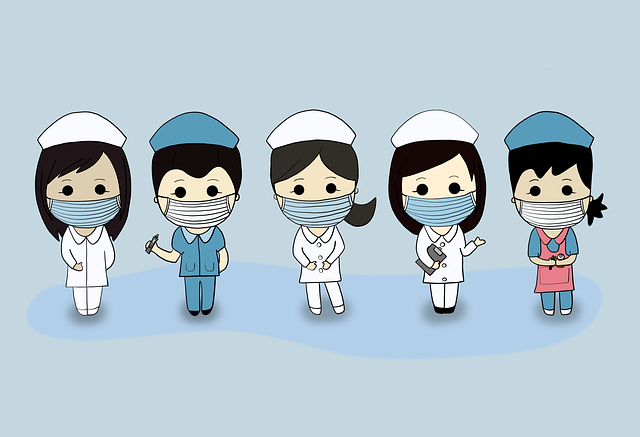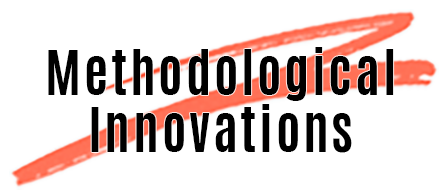Below are ‘What Next?’ pieces written by speakers from the conference. Jon Mulholland and Louise Ryan reflect on their use of Asynchronous Qualitative Longitudinal Research Methods, while Yessica Abigail Tronco Hernandez reflects on her research on nutrition for COVID-19 recovery.
What next in our project of Nutrition for COVID-19 recovery
By Yessica Abigail Tronco Hernandez
Research Fellow in Dietetics, School of Health Professions, University of Plymouth
Being the principal researcher in this project has made me realise that scientific research is anything but straightforward. The funding application for this project was submitted during the first six months of the COVID-19 outbreak, when there was no mention of long COVID at all. Once the funding was granted, we had the firm idea that a pathway of care was crucial to rapidly respond to the need to avoid re-hospitalisations as well as more pressures on the NHS. However, once we started collecting data as well as searching for a theoretical framework that supported that idea, we slowly starting to adapt our approach.
Data collection and Analysis
Firstly, our best arena to recruit healthcare professionals was through the community or primary care settings where only some cases were handled, those who remained with symptoms even after overcoming the acute phase at the hospital or in their houses. Secondly, we realised that many support groups through social media channels were established for people who were suffering from long COVID, and that is the place from which we received a good response to participate in our research. Many of them had relapsed various times and were yet struggling with different aspects of their diet and nutrition. We were glad to have a great response and we needed to be flexible with the data we were receiving. It was evident from the first couple of meetings that a pathway was going to be narrow for a disease we are still learning a lot from.
Data analysis is an iterative process and we observed how our original ideas evolved when presented to the two panels. Health professionals reached the general consensus that they would benefit from a resource that supports them in advising and or signposting patients to nutrition and dietary resources, but it needed to be a resource highly accessible, flexible, adaptable and based on the latest research and policy. Realistically this would have to be applied by other workers in primary care, charities and care homes that were not health staff. Therefore, they stated that a toolbox with different approaches according to the patient was going to be the most effective resource to map out nutritional support for healthcare professionals.
For the patient group, it was clear that an important volume of misleading information on nutrition and diet was passing through their eyes. This is nothing new as since the moment scientists suggested how certain vitamins and minerals could boost your immune system thereby preventing to suffer from COVID-19, a wave of misinformation took place and people locked down at their houses seemed to out their hope in supplements and so on. Our patient panel needed more straightforward and evidence-based answers through consistent advice. Most of them narrated experiences of being fobbed off by health professionals, and some of them still have to make efforts and speak out to get long COVID recognised across frontline workers.
Next steps
Bearing in mind what professionals said about resources constraints for health professionals to manage patients with long COVID and considering also that a good first step will be to empower patients, we developed the idea to deliver a series of free talks on the most voted topics in our patient panel. We tirelessly brainstormed with our research team and decided to reach out to top experts on the topics patients were more interested in; immunity, food intolerances, psychological wellbeing, dietary advice and healthy eating behaviours to recovery from COVID-19. These were received very well amongst patients and will be kept for future reference.
Finally, our findings showed that a single pathway of care would not meet the needs of all patients recovering from COVID-19, nor would they meet all healthcare professionals’ requirements to address nutritional care for all their cases. Therefore, we shifted the emphasis from creating a pathway of care to creating a comprehensive and online knowledge hub to be used by healthcare professionals and patients according to their particular needs and profile. We want this to be as robust as possible and we recruited professionals who could not sit in the panels but that nevertheless hold an essential role to advise patients on nutrition and diet (e.g. GPs, physiotherapists and social care workers, as well as others). These professionals as well as a different set of patients are supporting the review of the virtual knowledge hub that we developed with assistance from our great digital marketing team.
We will collate the reviewers’ feedback and make the relevant amendments after critical discussion with our research team, and we are hoping to launch the final version of this at some point in August 2021, thereby responding to a basic need that so many healthcare staff have been asking to be able to offer nutritional care for patients recovering from COVID-19.

“We realised that many support groups through social media channels were established for people who were suffering from long COVID”

“We developed the idea to deliver a series of free talks on the most voted topics in our patient panel”

“For the patient group, it was clear that an important volume of misleading information on nutrition was passing through their eyes”

“We shifted the emphasis from creating a pathway of care to creating a comprehensive and online knowledge hub to be used by healthcare professionals and patients according to their particular needs and profile”
Reflections on the use of Asynchronous Qualitative Longitudinal Research Methods: The Case of the French Highly Skilled in ‘Brexit Britain’: What Next?
By Jon Mulholland and Louise Ryan
Professor Louise Ryan, FAcSS, is Director of the Global Diversities and Inequalities Research Centre, London Metropolitan University
Dr. Jon Mulholland is an Associate Professor in Sociology at the University of the West of England, Bristol
At the Methodological Innovations in a Time of COVID Conference (June 7th 2021, University of Plymouth), we presented a paper entitled: Reflections on the use of Asynchronous Qualitative Longitudinal Research Methods: The Case of the French Highly Skilled in ‘Brexit Britain’. Here we discussed our experiences of using a-synchronous email interviewing within the context of a longitudinal methodology adopted unexpectedly in the context of dramatic changes in our field of research. The adoption of this methodology enabled us to quickly and efficaciously re-enter the field to ‘catch-up’ with research participants whose lives we expected might have been dramatically impacted by the Brexit Referendum; an event that was simply unimaginable at the point of our previous two phases of data collection in the early 2010s.
Whilst there has been a veritable explosion of research and publication regarding the multitudinous impacts of Brexit, there has been little focus on its impact on privileged highly skilled migrants from Western Europe. To date, most research has focused on the impact on Eastern European migrants. Furthermore, most research has lacked the insights that only longitudinal methods can provide. Having undertaken such extensive data collection at a point long before Brexit was imaginable, and then, through the use of asynchronous email methods, availing ourselves of the opportunity to revisit our participants in real time (post-Brexit), we have given ourselves a unique opportunity to explore the meaning of Brexit, ‘before and after’ as it were.
Rather than generating data about the past through the lens of the present, we are able draw on data from the past, when it was present, and compare those data to data drawn from the contemporary present, without the usual danger of perspectivism (Mcleod, 2003). We are currently exploring the nature of, and relationship between, those data sets, to develop further insights into the impact of Brexit through the lens of embedding. We introduced the concept of embedding in 2015 as a way of capturing the complex, dynamic and multi-dimensional process of belonging and attachment over time. Embedding becomes a powerful tool for analysing the impact of Brexit on our participants, but the longitudinal data in return helps us to illuminate the often subtle and even tacit ways in which embedding happens, helping us to see what was ‘unspoken’ in the pre-Brexit data, on the basis of its very ‘taken-for-grantedness’. We are working with the longitudinal data to deepen, broaden and complicate our appreciation of embedding across socio-cultural, economic-occupational, and political domains, reflecting the differentiated nature embedding as a social practice and as a concept. We are also using the data to further examine the multi-sited and multi-speed nature of embedding as a process following uncertain and rhizome-like trajectories over time and across space.
Whilst longitudinal research was not a part of the original research design of our ESRC-funded project (French Capital: A Study Of French Highly-Skilled Migrants In London’s Financial And Business Sectors), the unanticipated and inadvertent event of Brexit served as a catalyst for an unplanned adoption of longitudinal methods that in turn brought added value to the project, not only in terms of the new data generated, but via the granting of a new lens through which to see data past and present. Our approach to using asynchronous method (emails) suggests possibilities for undertaking new and follow up qualitative research despite restrictions on face to face, in person, data gathering, such as during the current pandemic.
“Most research has lacked the insights that only longitudinal methods can provide”

“The unanticipated and inadvertent event of Brexit served as a catalyst for an unplanned adoption of longitudinal methods that in turn brought added value to the project”

“Our approach to using asynchronous method (emails) suggests possibilities for undertaking new and follow up qualitative research despite restrictions on face to face, in person, data gathering, such as during the current pandemic.”

Reference
McLeod, J. (2003). Why we interview now–reflexivity and perspective in a longitudinal study. International journal of social research methodology, 6(3), 201-211.
